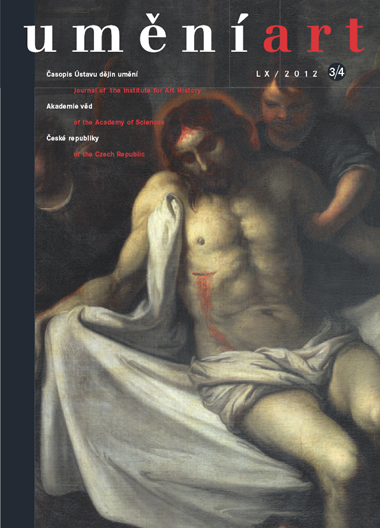Martina Hrabová
Studium či návštěva? Architekt Karel Hannauer jako zprostředkovatel zahraničních vlivů na českou avantgardní architekturu
Karel Hannauer Jr. was an important figure in Czech avant-garde architecture. The son of a successful contractor in the Nusle district of Prague, he received the best possible education and was able to devote himself fully to his own personal development. While a student he was actively involved in the contemporary cultural scene; he wrote for the daily press and specialised periodicals; and at the age of twenty-two he drove Le Corbusier around Prague in his convertible. During Hannauer's lifetime, biographical information published about him began to include statements that he had studied under Le Corbusier in Paris, Walter Gropius in Berlin, and Victor Bourgeois in Brussels. This claim about his well-rounded and cosmopolitan educational background took root in a scant historiography on the architect and is put forth with faith in the contemporary source even today. This article is based on a revision of the accepted information about Hannauer's studies abroad. Research on materials in archives abroad and Hannauer's otherwise inaccessible papers reveals a degree of self-promotion in the portrait of this historical figure. Not only did Karel Hannauer clearly not study under any of the aforementioned masters, in the case of one of them there is no evidence even of any professional contact. There is nothing in Hannauer's papers or in the archive of the Le Corbusier's studio to indicate that he studied under Le Corbusier, and surviving documents from the studio of André Lurçat include Hannauer's application for an internship, recommendations from the Club of Architects, and the rejection letter from the Parisian architect. Karel Hannauer was aware of how important foreign contacts were for success in the domestic scene. He knew that if he wanted his ideals to be recognised he needed to wrap them in the right publicity. Foreign experience and a good orientation in the wider context of avant-garde architecture had a strong influence on his work and was equally an important contribution to the domestic scene.
Full-text in the Digital Library of the Czech Academy of Sciences:
https://kramerius.lib.cas.cz/uuid/uuid:6623b4c4-3412-09c6-1c54-009f6a1c0b66
< back

